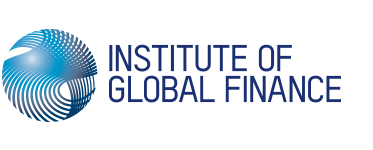Professor Fariborz Moshirian, the Director of the Institute of Global Finance, UNSW, on an interview with CNBC on August 9, 2019, talks about the Italian Coaliton.
Global Governance
Theme Leaders: Mark Humphery-Jenner, Peter Pham and Jason Zein
Governance refers to all processes of governing whether through laws, norms or power. It is primarily about what the relevant “governing body” does, about the way the rules and actions are produced, sustained and regulated. Wherever there is an overlap or absence of authority across sovereign states, global governance refers to the established (mediated) rights and obligations through which global collective interests are articulated.
Governance relating to the creation and regulation of public policy could be either private or public or both. Private or quasi-private organisations are often involved in the making of rules and setting of standards which have binding effects on the general public.
Governance relating to the creation and revision of government regulatory policies concerning financial institutions attracted much recent public attention. Regulatory governance reflects the tendency of decentred and mutually adaptive policy regimes to deal with complexity using delegated system of rules; in a system which is more complex, more global, more contested and more liberally democratic. It is governance beyond the state, through which state regulation is a constitutive instrument of governance. The development of the Basel Accords is one example.
The IGF has published several high impact research works and organised a number of policy fora that focus on these areas. The IGF and its Director, have been featured in recent years in a number of TV interviews on Bloomberg, CNBC, BBC and the ABC on issues related to global governance and the roles of multilateralism in this procees.
For further information in this area, please refer to the “Publications” and “Videos”.
Professor Fariborz Moshirian, the Director of the Institute of Global Finance, UNSW, on an interview with CNBC on August 29, 2019, talks about suspending the UK parliament.
Professor Fariborz Moshirian, the Director of the Institute of Global Finance, UNSW, on an interview with Bloomberg on July 8, 2019, talks about central bank independence.
Mr. Ian Pollari, the Global Co-Head of Fintech at KPMG, gives a keynote address on "the evolution of Banking Business Models: Fintech and Digital Innovation" at the 31st Australasian Finance and Banking Conference.
Please click here to watch the speech.
A major international Forum on global financial stability and global governance, in collaboration with the ADB, was held in February 2019.
The World Bank Director of Global Indicators, Dr. Augusto Lopez-Claros gives a keynote address on "Dangerous Disparities: The Global Crisis of Gender Inequality" at the 29th Australasian Finance and Banking Conference.
The Honourable Scott Morrison, the then Federal Treasurer, gave a keynote at the 29th Australasian Finance and Banking conference on National and Global Financial Issues.
Professor Fariborz Moshirian, the Director of the Institute of Global Finance, UNSW, on an interview with CNBC on June 7, 2019, discusses the possibility of a second Brexit referendum. He pointed out that many businesses in the U.K.



